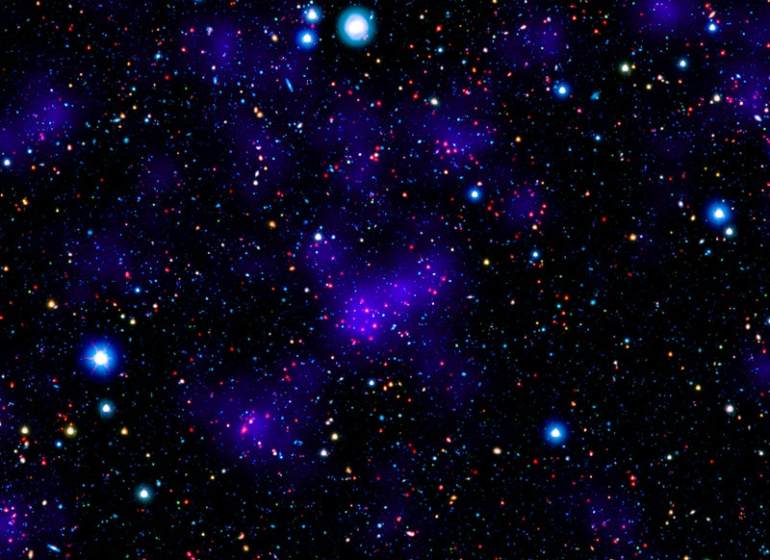Everyone knows that the speed of sound in air is about 340 meters per second.
But did you know how much the maximum possible speed of sound is in the universe?
Here is the answer of a team of physical scientists in a new scientific study.
In the paper published in the journal Science Advances, researchers from the United Kingdom and Russia calculated the maximum speed of sound, and showed that it is twice the maximum speed that has been measured so far on Earth.
Different speeds
It is known that sound is a mechanical wave resulting from a vibration in a medium, and when the wave travels through it, its particles collide with each other, carrying energy as it travels.
The stiffer the medium and the more difficult it is to compress, the faster the sound travels.
Therefore, sound is slower in gases than in liquids and gains higher velocity in solids.
It travels in the air in ambient conditions at a speed of about 340 meters per second, while in the water it reaches about 1500 meters per second, and in iron more than 5000 meters per second.
And in a solid and dense material, such as diamond, sound can travel faster.
And sound waves with solid materials are of great importance in many scientific fields, as they are used, for example, to study the Earth's interior when the sound waves from earthquakes traveled through it.
It can also be used to understand the internal make-up of stars.
Constants to measure the maximum speed
But what if we wanted to measure the fastest possible speed of sound, taking into account all the matter in the universe?
Here, scientists use a different method that relies on physical constants, which is a physical quantity that is generally believed to be constant in nature and does not change with time such as the speed of sound.
This is what scientists used in the new scientific study, the results of which were transmitted by the press release issued by Queen Mary / University of London, in calculating the maximum speed of sound in the universe.
For the first time, they concluded that the upper limit of this velocity depends on two quantities, the first being the microstructure constant, which is a physical constant to measure the intensity of the magnetic effect between the charged elementary particles, and the second is the ratio of the mass of the proton to the electron.
The researchers calculated the upper limit of the speed of sound in the universe at about 36 kilometers per second.
Although it is only about one in 10,000 times the speed of light, it is equal to twice the highest speed of sound on Earth in the diamond mineral, at about 18 kilometers per second.
The maximum speed of sound in the universe is twice the maximum speed recorded on Earth (Rubixel)
Multiple applications
In their paper, the researchers say that "precisely controlled values of the microstructure constant, the ratio of the proton mass to the electron, and the balance between them control nuclear reactions such as proton decay and nuclear fusion processes in stars, which lead to the formation of basic biochemical elements, including carbon."
They add that this balance also provides a "habitable zone" in space where stars and planets can form, and the molecular structures supporting life appear.
To confirm their equation, the research team experimentally measured the speed of sound in a large number of solids and liquids, and came up with results consistent with their predictions.
According to the researchers, the results of this study could have more scientific applications by helping to study some of the properties of superconductors at high temperatures, such as viscosity and thermal conductivity, understanding the physical state of subatomic particle plasma, and in developing black hole physics.

